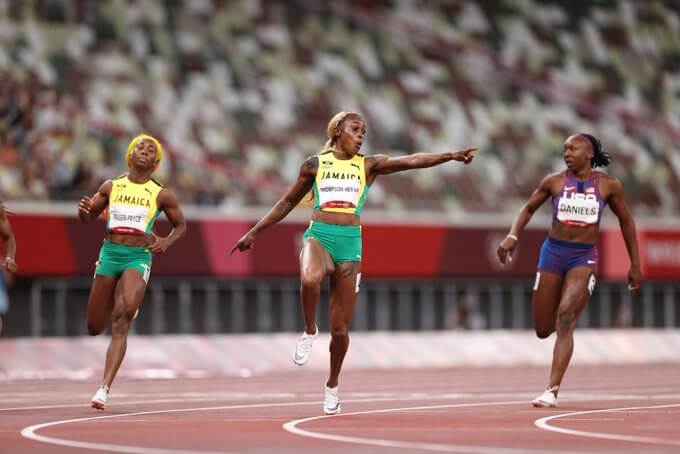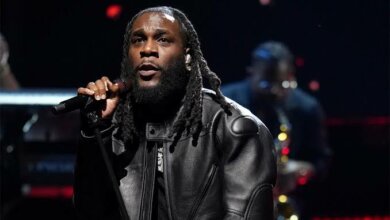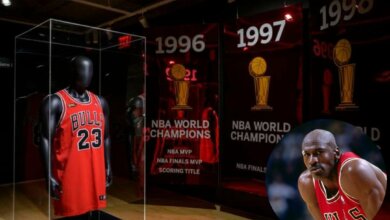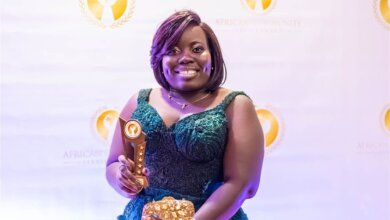“Yes we play football, it doesn’t make us men”: LIS Conference 2019 tackles barriers facing women in sports
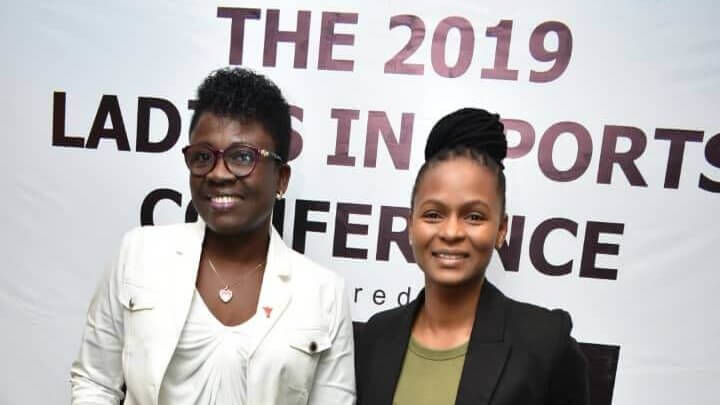
Time and again, women are being made to prove they belong in sports – whether as athletes, journalists or administrators – having to overcome various barriers, deeply rooted in the partriarchal nature of society, to achieve their goals.
A rousing round of applause rented the air at the Eko Hotel and Suites in Lagos, Nigeria, when Mercy Tagoe Quarcoo, Black Queens of Ghana coach, spoke about her achievements as a sportswoman at the 2019 edition of the Ladies in Sports Conference on Friday, July 26. “A World Cup player, a World Cup referee, aspiring to be a World Cup coach,” Tagoe enthused. This is someone who had to tell her strict father – who did not approve of her decision to play football – a lie so she could honour her first national team call-up.
The LIS Conference founded by Nigerian sports journalist Tega Onojaife, aims to tackle the neglect that women sports and women in sports face. Hence every year since 2016 experts in various fields related to sports are invited as facilitators to the one-day event, which also provides a perfect platform for networking.
Read Also: SAL 2019 Beach Games: Exciting times ahead for Ghana Sports Tourism
But one of the major challenges Onojaife has had to contend with is getting sponsorships, because brands would rather support initiatives that has to do with the Super Eagles – the country’s senior men’s football team. However, she expressed immense gratitude to the few corporate bodies that keyed into the theme of this fourth LIS Conference: “Keeping the barriers down”.
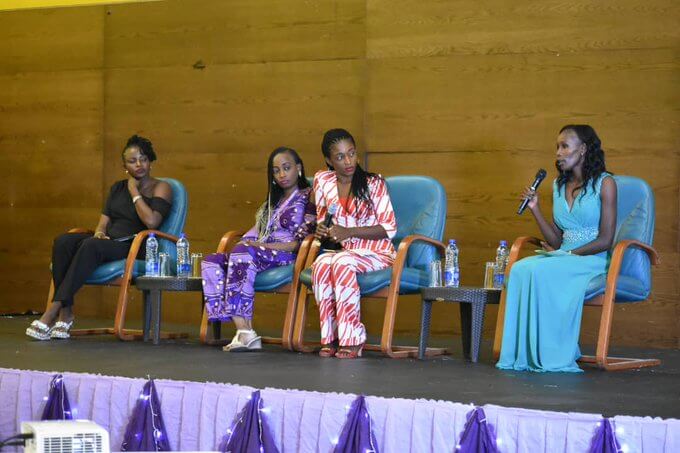
The first panel of the day, moderated by ACL Sports’ reporter Queen Moseph, featured 2007 world champion in 800m – Janeth Jepkosgei, Athletics blogger and scout – Funmi Fameso, and 2017 FIBA Women’s Afrobasket winner – Nkechi Akashili. While BBC presenter Janine Anthony was the moderator for the second session, which was graced with the presence of the first ever Ghanaian female coach to win a trophy – Mercy Tagoe Quarcoo, former Banyana Banyana of South Africa captain – Amanda Dlamini, and Super Falcons of Nigeria captain to the 2019 FIFA Women’s World Cup – Desire Oparanozie. These are some of the inspiring figures that have crushed the demeaning myth that relegates women to the kitchen.
Read Also: Algeria win 2019 Africa Cup of Nations with freak early goal
SELF-BELIEF But it took self-belief to overcome the initial barrier. In Africa, especially, many parents forbid their girl-child from playing sports because they believe it is an activity reserved for boys. Mercy’s father was only convinced after he watched her on television and then he told her: “You’ve lied to me but I really appreciate it.” On her own part, Nkechi’s father did not want to hear her talking about basketball, she would even get beaten after returning home from practice. But she eventually found breakthrough after clinching the Most Valuable Player award at a basketball competition for secondary schools.“You need to support yourself. You need to know what you want and fight for yourself before people will fight for you,” said Akashili, who also plays handball.
There are also fears that a girl would look more muscular and less marriageable when she gets involved in sports. But some parents fail to realize that playing sports does not make their daughter any less of a girl or woman. “Yes we play football, it doesn’t make us men,” said Tagoe, who also proudly declared: “I am a married woman, I am a mother of two, I work, I take care of my husband.”Kenya’s middle-distance ace Jepkosgei said: “You know in Africa you grow up in a rural area where after school maybe you get married. I didn’t want to do that. I wanted to have a career.” And now, the 35-year-old does not only have an illustrious career to boast of, she has only returned to the track after taking a three-year maternity break. The 2008 Beijing Olympics 800m silver medallist, who is 35 years old, said “being a mother is the best thing that has ever happened to me”. Her daughter will be three in August.
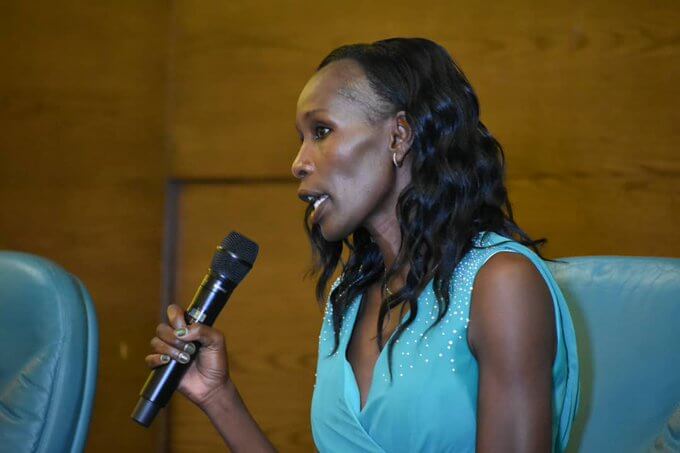
DON’T LOSE HOPE Fameso is a Microbiology graduate, who developed a passion for athletics while watching the Sydney 2000 Olympics. In spite of the sport not being as popular as football in Nigeria, she has taken it upon herself to consistently project athletics in the best way possible so that people can become more interested in the sport, and she is sacrificing a lot personally to achieve this. There have been times she had thought of giving up because it seemed like her labour was in vain but her “support group” urged her to keep at it. She has carved a niche for herself and has been able to create a personal relationship with athletes and coaches such that they tell her anything. “Don’t give up just continue pushing,” she urged. “One more try could be your breakthrough.”
Read Also: Olympian Akwasi Frimpong’s story in Oxford University Press textbook
FUNDING Coach Tagoe does not understand why lack of funding remains a stumbling block for women sports considering that women athletes have remained diligent with very little, excelling against the odds. “If nobody will tell me that, ‘Mercy you’ve done well’, I will tell myself because I believe in myself. This should be enough for every eye to see and come on board,” coach Tagoe said. More often than not, women sports feed off crumbs to survive and Tagoe believes the solution to this problem obviously requires a change of attitude by government, sports associations, corporate bodies and individuals, towards women sports and women in sports.
Guingamp of France forward Oparanozie is in support of the call for equal pay while reiterating that the Super Falcons of Nigeria are “the most successful national team in Africa”. “We’ve done so well for this country and we should be recognized.” She added. For her, the Nigeria Football Federation (NFF) should give equal attention to women’s football “in projection, presentation, renumeration” and game time.
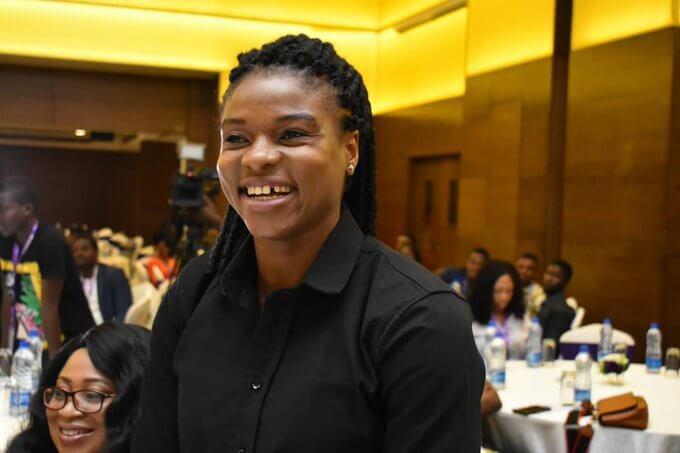
VISIBILITY AND MARKETABILITY Oparanozie also believes that putting the Nigeria Women Football League (NWFL) on TV will help more people know about the league and subsequently attract sponsors. Speaking of visibility, Dlamini, who boasts several endorsement deals said: “I think where we should start first is to train our athletes where media is concerned. I think just the general Q and A of how to present yourself in front of the camera, how to do your radio interviews. I was very fortunate that when we were in camp with Banyana we used to have media trainings.” Those trainings forged her into the football analyst that she is today, ensuring her smooth transition from the football pitch to a TV studio.
Being able to engage with the media is an important step towards marketability. “We are actually selling ourselves to someone who is watching on the other side of the lens,” Amanda added, while also highlighting the importance of education.
“Sometimes you need to package yourselves well,” Mercy advised. “In as much as we are crying or asking for gender equality, how you sell yourself is the same amount they are going to buy you. The way we dress, the way we mingle with people how we present ourselves in the midst of people, how we even talk, how we do things. If you package yourself well, your prices will go high.”
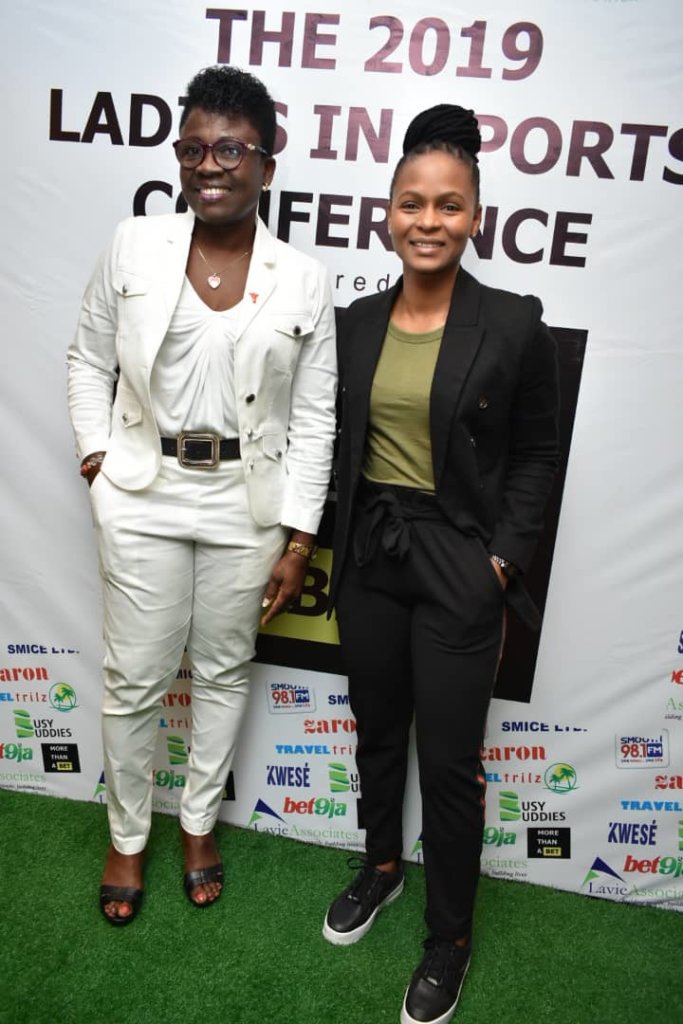
GIVING BACK When NFF first vice president Barrister Seyi Akinwunmi took the stage to deliver a presentation on “women’s sports development” before the panel discussions, he spoke about giving back. “You need to mentor the next generation of women. People look up to you as a star. They want to be like you. ‘I want to be Asisat’, ‘I want to be Desire’.” Asisat Oshoala and Desire Oparanozie already have foundations aimed at empowering the girl-child through football, Amanda Dlamini as well. Janeth Jepkosgei organizes athletics camps for kids during holidays in Kenya and Nkechi Akashili does the basketball equivalent in Nigeria.
Another important issue Akinwunmi pointed out is that girls are not exposed to the same opportunities as boys in terms of youth development and this has given birth to an idea called “let the girl play”, a Lagos State Football Association-inspired project that could be implemented across the country soon. It is a project that will involve the parents, the school, and the FA. “Many parents think that once your daughter goes to play football, you’ve lost her as a girl. We know it’s not true,” Akinwunmi said.
GRANTS The Ladies in Sports Conference continued its generous tradition of giving grants to outstanding athletes across different sports. The five recipients of this year’s grants were Chiamaka Nnadozie (football), Rosemary Chukwuma (athletics), Sunmisola Balogun (wrestling), Adijat Aziz (judo) and Esther Onyema (powerlifting).
Source: aipsmedia.com
Christopher Sam is a savvy web designer and developer with advanced knowledge in Search Engine Optimization. The certified Google Trainer is also a trusty contributor to this website.

